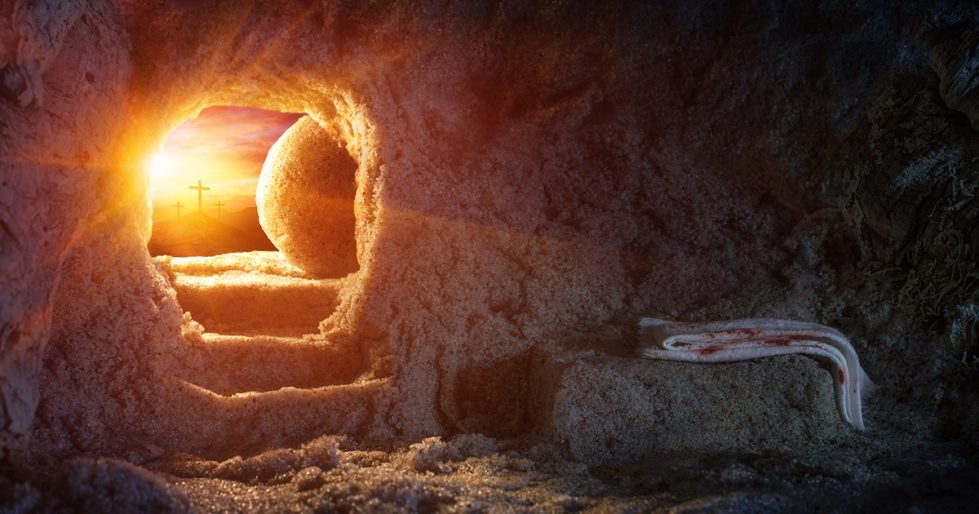Background Passages: Genesis 2:15; Ecclesiastes 3:9-13; Colossians 3:23-24; Matthew 11:38
From the time we are children, we eagerly anticipate holidays. Thanksgiving brings us a parade and a feast of turkey and dressing as it reminds us to express gratitude for all God has provided in life. Christmas excites us with its time of gifts and giving, of family and the celebration of Christ’s birth.
New Year’s Day brings its new beginnings and more than its share of doomed resolutions. Easter is a time for hunting eggs with the kids and wearing our Sunday best to church as we remember all Jesus did as his gift of salvation. July 4th is all about picnics and fireworks as it instills its sense of patriotism and love for country.
Then, comes Labor Day…with its day off and the certain knowledge that proper women can no longer wear white.
Labor Day, enacted as a national holiday by President Grover Cleveland in 1882, commemorates the labor rights established to protect workers from the exploitation of way too powerful corporations and greedy industrial moguls concerned only with profit. It recognizes the many contributions workers have made to America’s strength and prosperity. I’m often reminded on Labor Day to express my gratitude for those who do the dirty and necessary work to keeps our society functioning.
I’m grateful for those men and women in my life who taught me the value of hard work. My first examples were my Dad and every other farmer I ever knew in that small West Texas community where I grew up. Hard work was an expectation. A life commitment.
My Mom spent the early years of my life as an equally hard-working farmer’s wife. No one who hasn’t lived that life should scoff at that. It was never easy. Her later years were spent as a medical director of a retirement community where her skill and compassion brought comfort to her elderly patients.
My thoughts this Labor Day weekend are less about the holiday and more about the work we are called to do and how we are called to do it.
Work is hard. Whether we work at home, at school, on a factory floor, in a petrochemical plant, on a farm or in a nice, air-conditioned office, work can be difficult.
Unreasonable deadlines. Computer crashes. Difficult customers. Demanding bosses. Baffling regulations. The list of challenges faced in the workplace is endless. From labor shortages to the difficult decisions to let employees go, it never seems to get easier. Even at home there is always another dinner to cook, another pile of clothes to wash and a lawn that needs mowing.
Despite the fact that we may be doing work that we typically enjoy, there are days when you wonder if it’s worth the effort.
It wasn’t supposed to be this way. In the perfect world God created, work would have been, well, perfect because the workplace was perfect.
“The Lord God took the man and put him in the Garden of Eden to work it and take care of it…” (Genesis 2:15)
The life God planned for us went quickly off the rails because of sin’s devastating folly. The nature of work changed.
“Cursed is the ground because of you, in painful toil you shall eat food from it all the days of your life. It will produce thorns and thistles for you, and you will eat the plants of the field. By the sweat of your brow you shall eat your food until you return to the ground, since from it you were taken. For dust you are and to dust you will return. (Genesis 3:17-19)
Brutal!
The wisdom of Ecclesiastes describes the writer’s work experiences…the disillusionment that comes when his work leaves him unfulfilled.
I hated life because the work that is done under the sun was grievous to me. All of it is meaningless, chasing after the wind. I hated all the things I had toiled for under the sun because I must leave them to the one who comes after me. And who knows whether that person will be wise or foolish? Yet they will have control over all the fruit of my toil in which I have poured my effort and skill under the sun. This too is meaningless. (Ecclesiastes 2:17-18)
If that wasn’t sad enough, the writer continued to share his heart’s despair.
What do people get for all the toil and anxious striving with which they labor under the sun? All their days their work is grief and pain; even at night their minds do not rest. This too is meaningless. (Ecclesiastes 2:22-23)
His lament begins to sound like the gospel of the Rolling Stones, “I can’t get no satisfaction…but I try, and it try, and I try…
Let me stop there or we’ll be too depressed to get out of bed Tuesday morning. The writer of Ecclesiastes doesn’t completely despair. He doesn’t hit the snooze button on his alarm, refusing to get up for work the next morning. He tells us in Chapter 3 that there is a time for every activity under heaven.
What do workers gain from their toil? I have seen the burden God has laid on the human race. He has made everything beautiful in its time. He has set eternity in the human heart; yet, no one can fathom what God has done from beginning to end. I know that there is nothing better for people than to be happy and to do good while they live. That each of them may eat and drink and find satisfaction in all their toil…this is the gift of God. (Ecclesiastes 3:9-13)
What changed in the writer’s heart?
It was the certain understanding that everything God created, even work, had its time, place and purpose. As we learn to trust him in all things, even work, we start seeing the work he has given us through our talent and skills as his work…doing good while we live.
So natural was this idea of work in God’s plan for us that when God sent his son to live and dwell among us, he toiled beside his father and brothers in the family business long before he began his ministry.
While the scripture tells us nothing about the 18 years between Jesus’ appearance in the temple as a 12-year-old and the beginning of his ministry as a man of thirty years, Jewish culture expected boys to begin working as apprentices in their father’s business. Joseph, Jesus’ earthly father was a carpenter, a worker in wood and stone.
It takes little imagination to feel the callouses on Jesus’ hands and see the muscles bulging as a result of many years wielding a hammer. You can see the tiny scars that represent every time the chisel slipped and cut his fingers. It takes little imagination to see the joy on his face as his friends and neighbors delighted in the house or table Jesus built for them with his own hands. It was a good work. A work God called him for when he sent him to Mary and Joseph. A work as much about his Father’s business at that time in his life as the redemptive work he would do later on the cross.
As he preached the gospel, Paul worked as a tentmaker to help pay his way. As someone who took pride in his work, Paul saw his vocation as an extension of his ministry. His way of setting himself apart from others as a witness for Christ. It was a word he extended even to the slaves of his day. This is what he told his brothers and sisters in Christ in the church at Colossae.
“Whatever you do work at it with all your heart, as working for the Lord, not for human masters, since you know that you will receive an inheritance from the Lord as a reward. It is the Lord Christ you are serving.” (Colossians 3:23-24)
We spent easily one-third of our adult lives working. Paul tells us to pour our hearts into our work. Give it our absolute best, even when we might feel mistreated. Work each day as if the Lord himself was your boss because, he says, “It is the Lord Christ you are serving.”
It is the apostle’s way of reminding us that in a broken world, work will never be what it was intended. The good news is that Jesus changes everything. When we begin to see that our work, whatever it may be, is an extension of our ministry and mission given to us by God, then we’ll see the true value of every hour spent in his service.
• Farmers feed and clothe.
• Teachers develop and teach.
• Doctors and nurses heal.
• Industry workers create and build.
• Homemakers love and comfort.
• Police offers and firefighters protect and serve.
I don’t care what you do for a living. Your work is rife with opportunity to be the hands and feet of Jesus, touching the lives of all you encounter. What we do on Monday through Friday cannot be separated from the one we worship on Sunday.
It is the Lord Christ we are serving.
I don’t think I fully appreciated that truth as a young man. Work was work. Ministry was ministry. It didn’t often occur to me that those worlds should exist in the same space. God opened my eyes during a Halloween poster contest at one of the schools in our district.
I had been invited to judge a Halloween mask contest at one of the elementary campuses in my school district where I served in a low administrative role. Most of the masks hanging on the wall were decorated elaborately with obvious parental help.
Standing with the principal who was also judging, we came across one mask that was little more than a Kroger paper shopping bag with a crudely painted face upon it. Holes were raggedly cut for the eyes and mouth.
Thinking nothing of it, I sarcastically told the principal that it was obvious the parents didn’t help on this mask. She gave me a wry smile and told me that the father of the little girl who made this mask was in prison. The girl had been removed from her home because the mother had a severe drug addiction.
That timid, third grade girl had been sent to live with two elderly grandparents. Shortly after her arrival the grandmother died, leaving the little girl in the care of a grandfather who lived his life confined to a wheelchair and a bottle of oxygen.
By the time she finished the story, I fought back the tears of my insensitivity and heard clearly God’s gentle reminder that I was in this business to serve him. That I was to be about his business while doing my business.
I spent a few minutes that morning, my heart broken, but at the same time buoyed, sitting and talking with a smiling little third grade girl whose only refuge in life was the classroom. Whose only stability was her teachers.
God rocked my world that day, opening my eyes to the possibility that every minute of my work was my field…and the field was ripe for harvest. He reminded me that every day presented chances to show his love and grace to people who needed to feel his touch through me.
I hope you’ve had that moment in your career when you began to understand that it is the Lord Christ you are serving no matter what your job or profession might be.
It’s easy to do just enough work to get by. I watched a few people do exactly that during my 40-year career. However, God asks something different of those who he calls his children. As you start your work each day, be reminded that the writer of Ecclesiastes said to recognize our work is a “gift of God and to “do good while we live.”
When the alarm goes off each day, remember that Paul said that “whatever you do, work at it with all your heart,” as if you’re really “working for the Lord.” Find ways to express his love through the work you do.
If you’re doing it right, I’m convinced work will always be difficult, but it will never be drudgery. There will be times when “Thank God It’s Friday” will be less in anticipation of a weekend of celebration and more a prayer of praise that you survived another week. However, if we work each day as if we’re working for God, then the burden will not be all that heavy. There will be joy in the labor.
As a carpenter and stonemason, Jesus knew what it meant to work long, back-breaking hours in the blistering sun. He knew the burden of responsibility would take its toll some days…especially if we remember that it is the Lord Christ we’re serving. I think that’s one reason he told those who would listen…
Come to me, all you who labor and are heavy laden and I will give you rest. (Matthew 11:28)
So as we enter this Labor Day holiday weekend, I pray you find the deserved rest and peace of Christ that will recharge your batteries and enable you to punch the clock on Tuesday with the resolve of one who knows for whom he is working.
Happy Labor Day!









